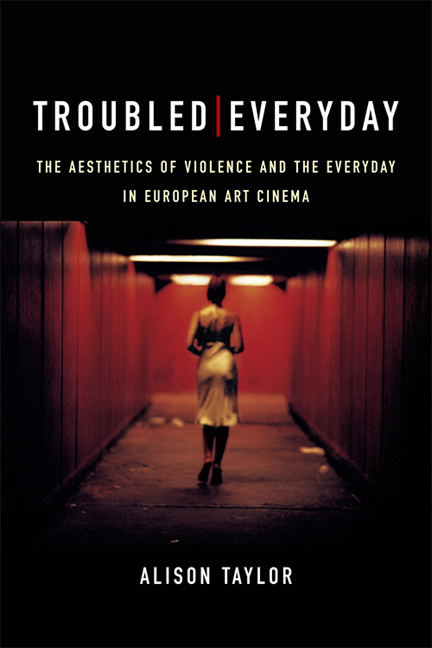Conclusion: Looking Back
Published online by Cambridge University Press: 22 December 2017
Summary
The light which puts out our eyes is darkness to us. Only that day dawns to which we are awake. There is more day to dawn. The sun is but a morning star. (Henry David Thoreau, Walden, 243)
… the world must be regained every day, in repetition, regained as gone. (Stanley Cavell, In Quest of the Ordinary, 172)
An off-duty soldier walking down a busy London street one afternoon is hit by a car whose occupants immediately get out to hack him to death with a meat cleaver. An international student studying in Montreal and working part-time at a convenience store is reported missing before a video of his murder, dismemberment and post-mortem sexual degradation surfaces on an online gore site. The eldest son of a Cairns woman visits the family home to be told ‘I've killed them’, before discovering the bodies of eight of his siblings. The co-pilot of a commercial aircraft bound for Düsseldorf deliberately locks himself in the cockpit to initiate a descent into the French Alps, killing himself and all 149 other passengers and crew aboard.
The stories above, faits divers plucked from recent news, exemplify real-life collisions between violence and the everyday. It is a paradox of the everyday that out of the familiar routines and repetitions of daily life erupts the irrational and unpredictable. Nothing happens, but something is always happening. The eventful rears its head, sometimes with devastating consequences, and yet the everyday persists and progresses indifferent.
The films considered in this book capture and aestheticise this paradox – the everyday's ‘fruitful ambivalence’ – by pitching the familiar and repetitious in tension with the violent and eventful. I claim that this strain gives rise to uncertainty, manifest in a foreclosing of textual containment that precludes us from tethering acts of violence to secure and stable meaning. This may be in the brief intrusions of an uncanny everyday upon worlds in which violence has become omnipresent. At other times, this tension is evident in the refusal to bear access to the subjectivity that might render severe actions legible, or in the stylistic flattening that suggests that murder and suicide are on a par with buying groceries or getting ready for work.
- Type
- Chapter
- Information
- Troubled EverydayThe Aesthetics of Violence and the Everyday in European Art Cinema, pp. 117 - 124Publisher: Edinburgh University PressPrint publication year: 2017



